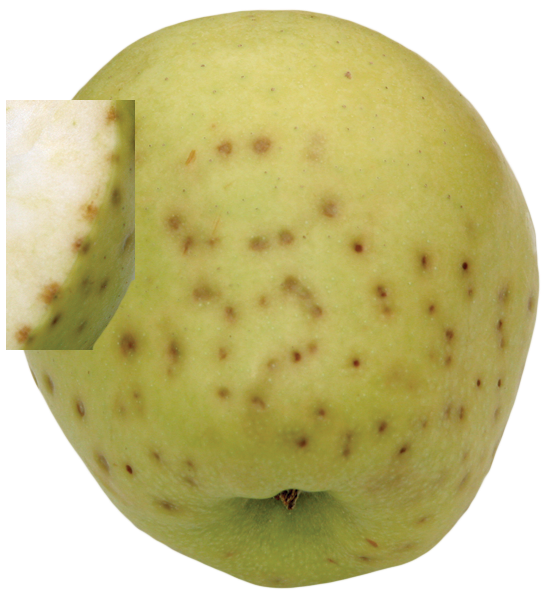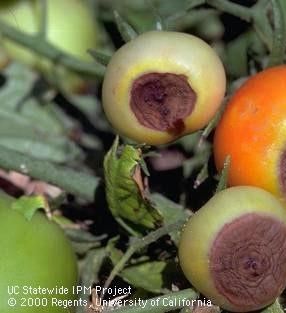Fighting Calcium Disorders with Foliar Applications
March 18, 2020
As the weather warms up during the transition from spring to summer, calcium deficiencies can produce a variety of disorders in vegetables and tree fruit. These include tipburn in lettuce, blackheart in celery, internal brown spot in potatoes, blossom end rot in tomatoes, corky spot in pears, and bitter pit in apples. All of these disorders occur in rapidly expanding tissue that can have limited supply of calcium from the soil.
Calcium availability is closely linked to water uptake from the soil. Low soil moisture and/or high heat can reduce uptake of calcium. Standard practices for mitigating calcium deficiencies include good irrigation management and amending the soil with calcium sources like gypsum. However, fruit and young leaves naturally receive a lower supply of calcium because they have lower transpiration rates than mature leaves and do not pull as much calcium up from the soil. Calcium is also highly immobile within plants, so it cannot easily be remobilized from older leaves.
Calcium plays a critical structural role in the formation and stability of both cell walls and cell membranes. Calcium related disorders occur when a localized lack of calcium leads to poor cell wall and membrane function and eventually causes cell death in the area. Foliar calcium applications that are directly absorbed by the expanding tissue, helps prevent these types of localized disorders.

Tipburn in lettuce
Source: University of California Agriculture and Natural Resources
Foliar calcium also help with fruit quality of other crops like berries, melons, and stone fruit. The resulting improved cell wall structure enhances firmness of the fruit, and reduces post-harvest diseases such as Botrytis cinerea in berries.
BRANDT Products
BRANDT has several foliar calcium formulations that are highly effective and provide good crop safety:
- Foli-Cal®
- BRANDT® Manni-Plex® Cal Zn
- BRANDT Manni-Plex Cal Mag
- BRANDT Manni-Plex Cal-B
These formulations are all complexed with sugar alcohols to improve nutrient delivery.
BRANDT® Organiplex® 8% Ca is an amino acid complex and is approved for organic use.
For all these formulations, 1-2 quarts per acre per application will work well.

Bitter pit in apples
Source: Washington State University Tree Fruit Research and Extension Center

Blossom end rot in tomatoes
Source: University of California Agriculture and Natural Resources
